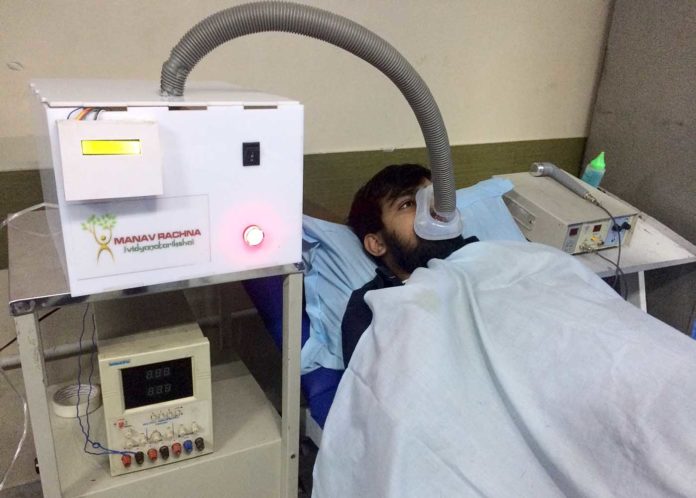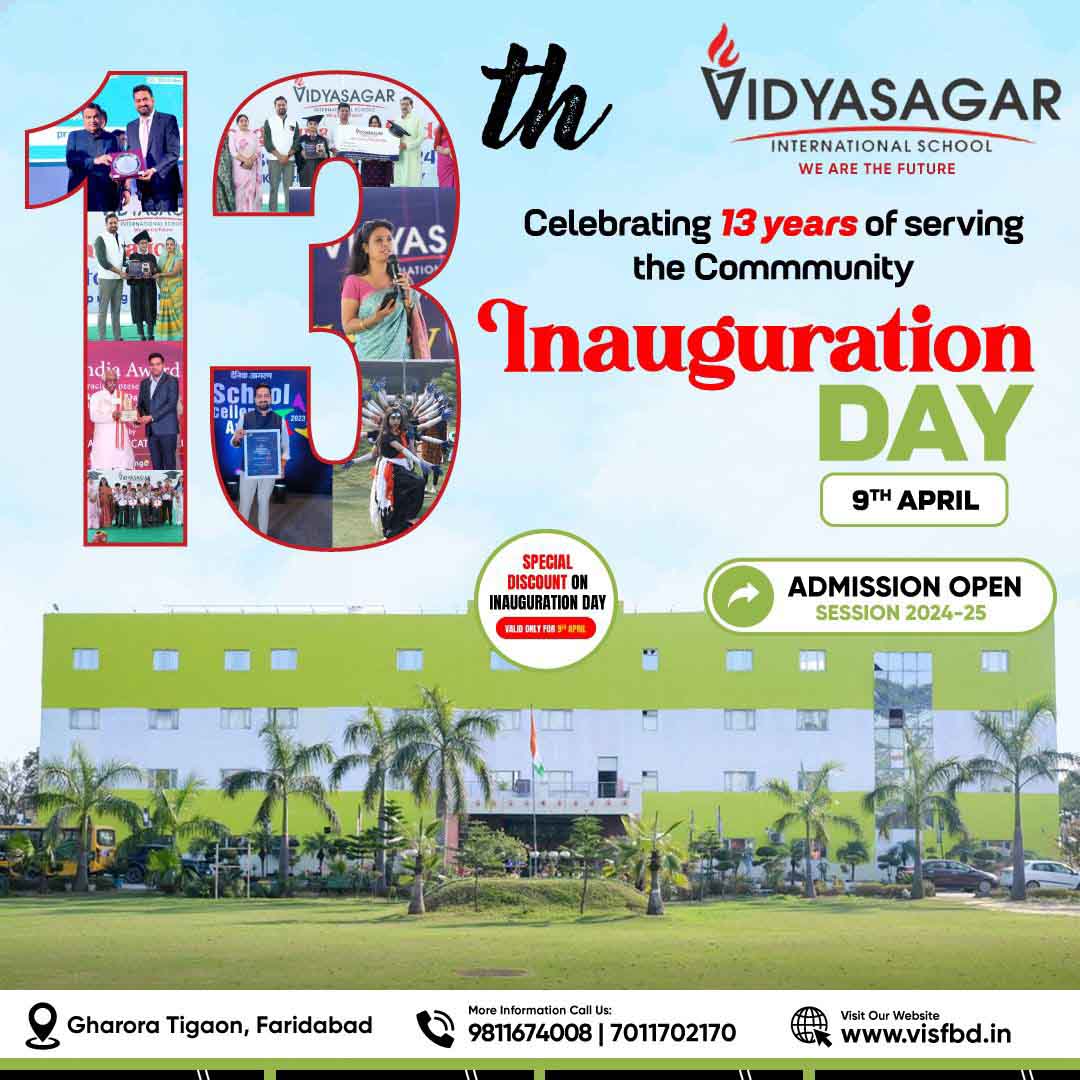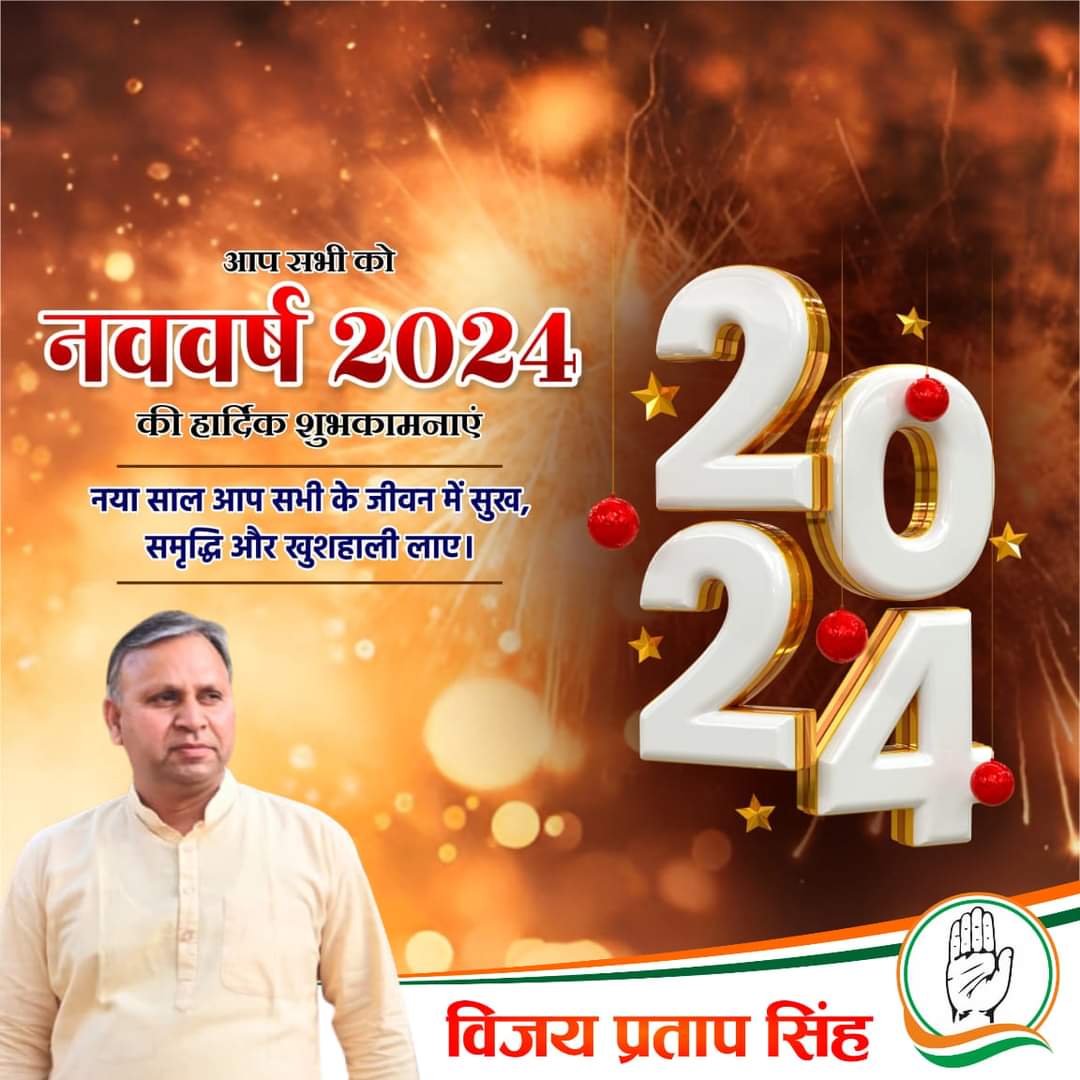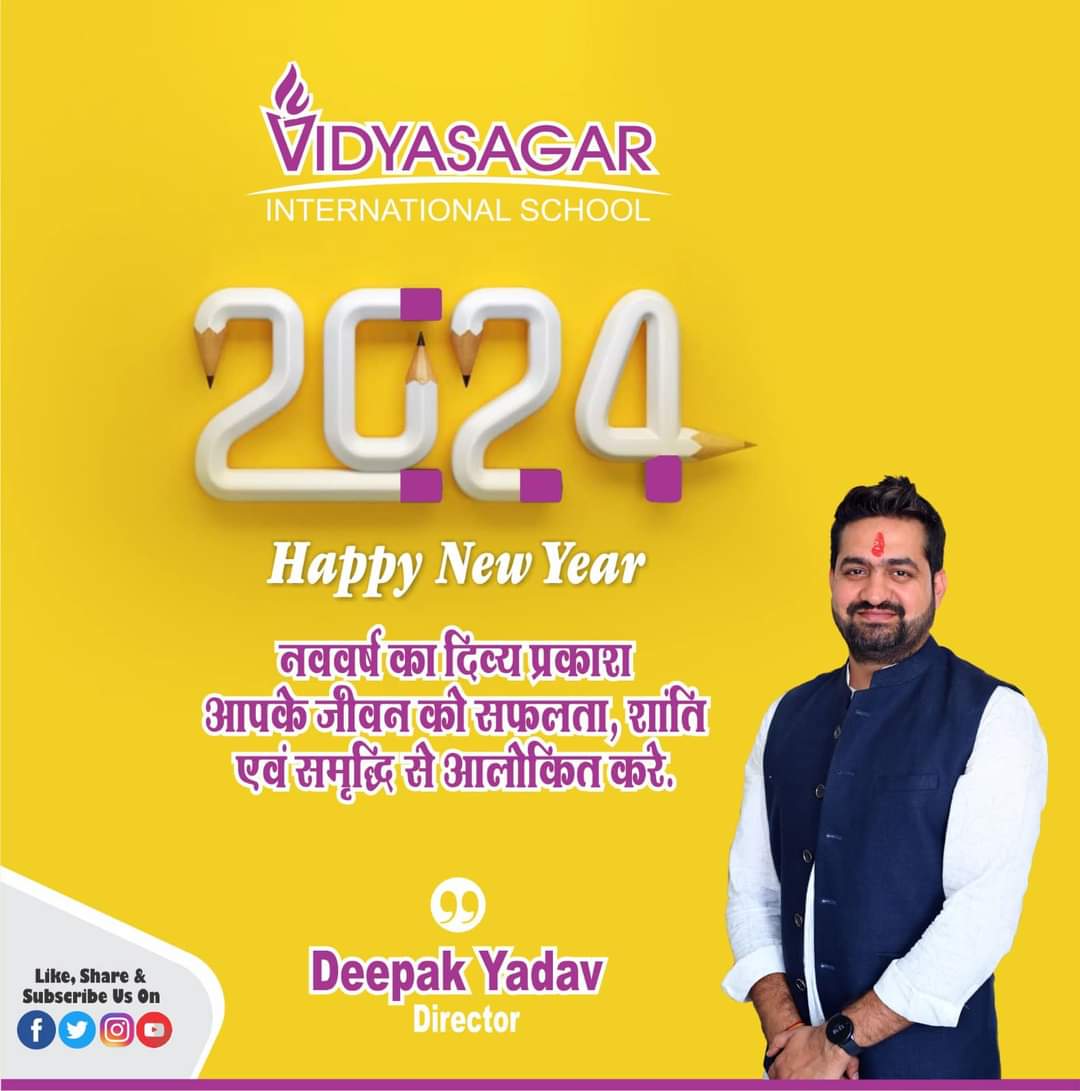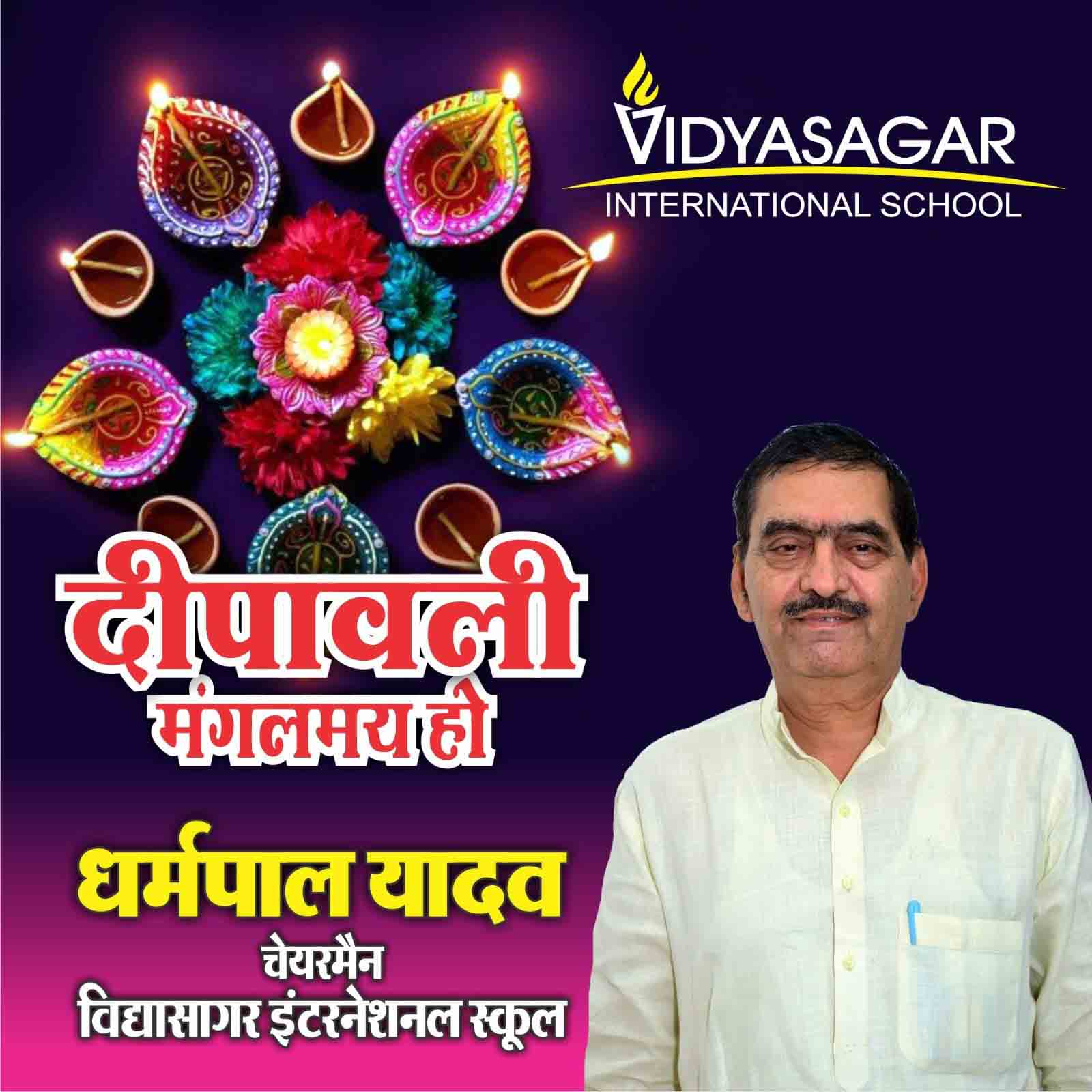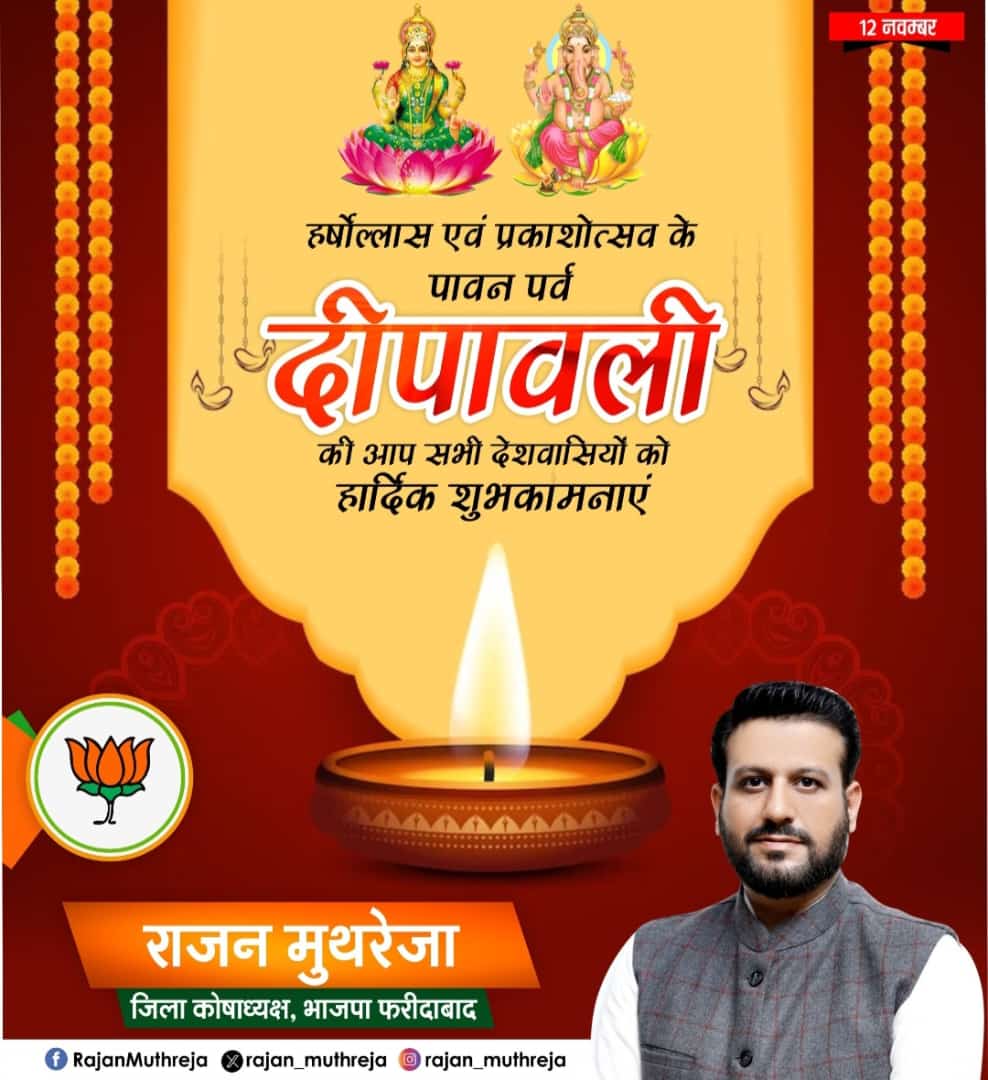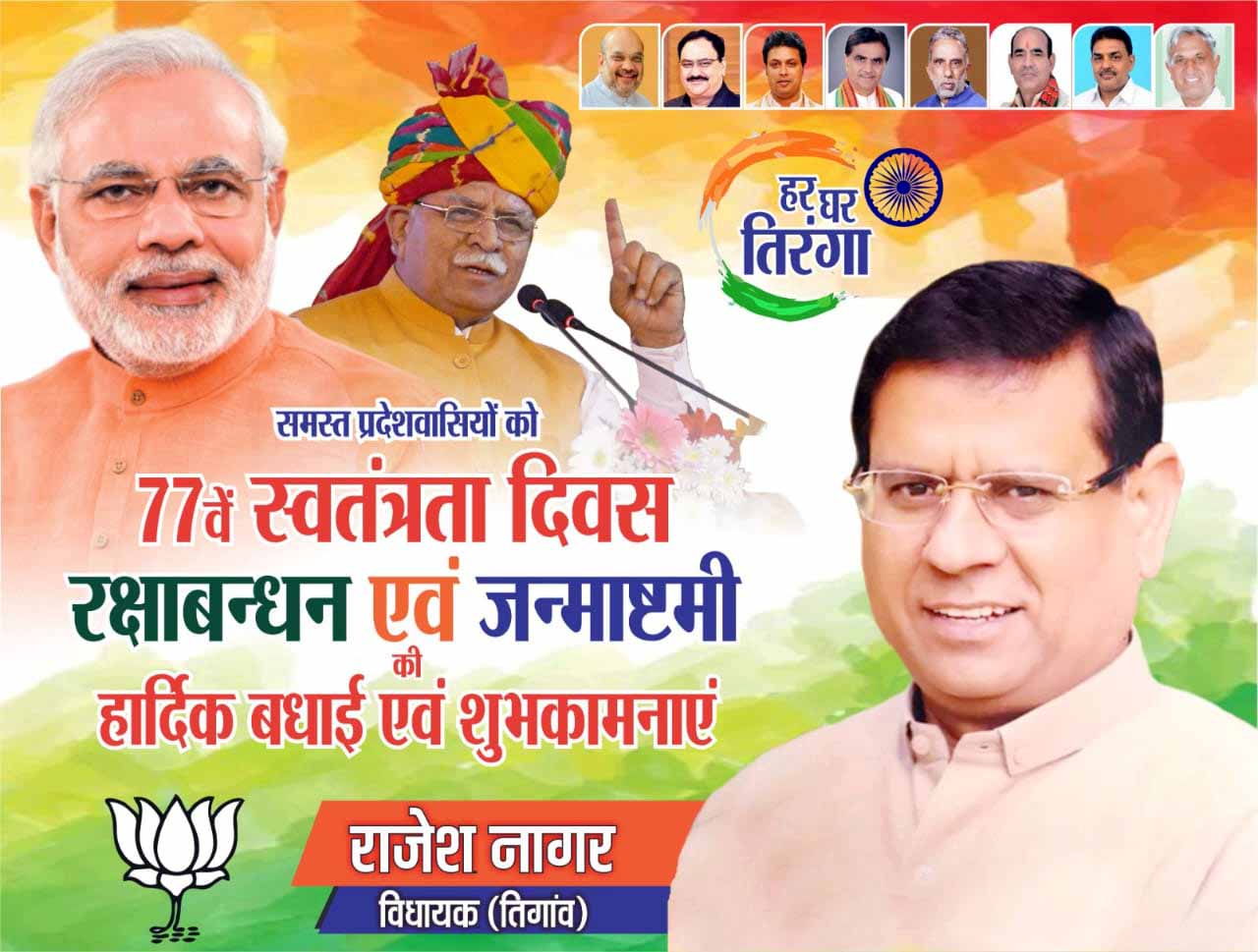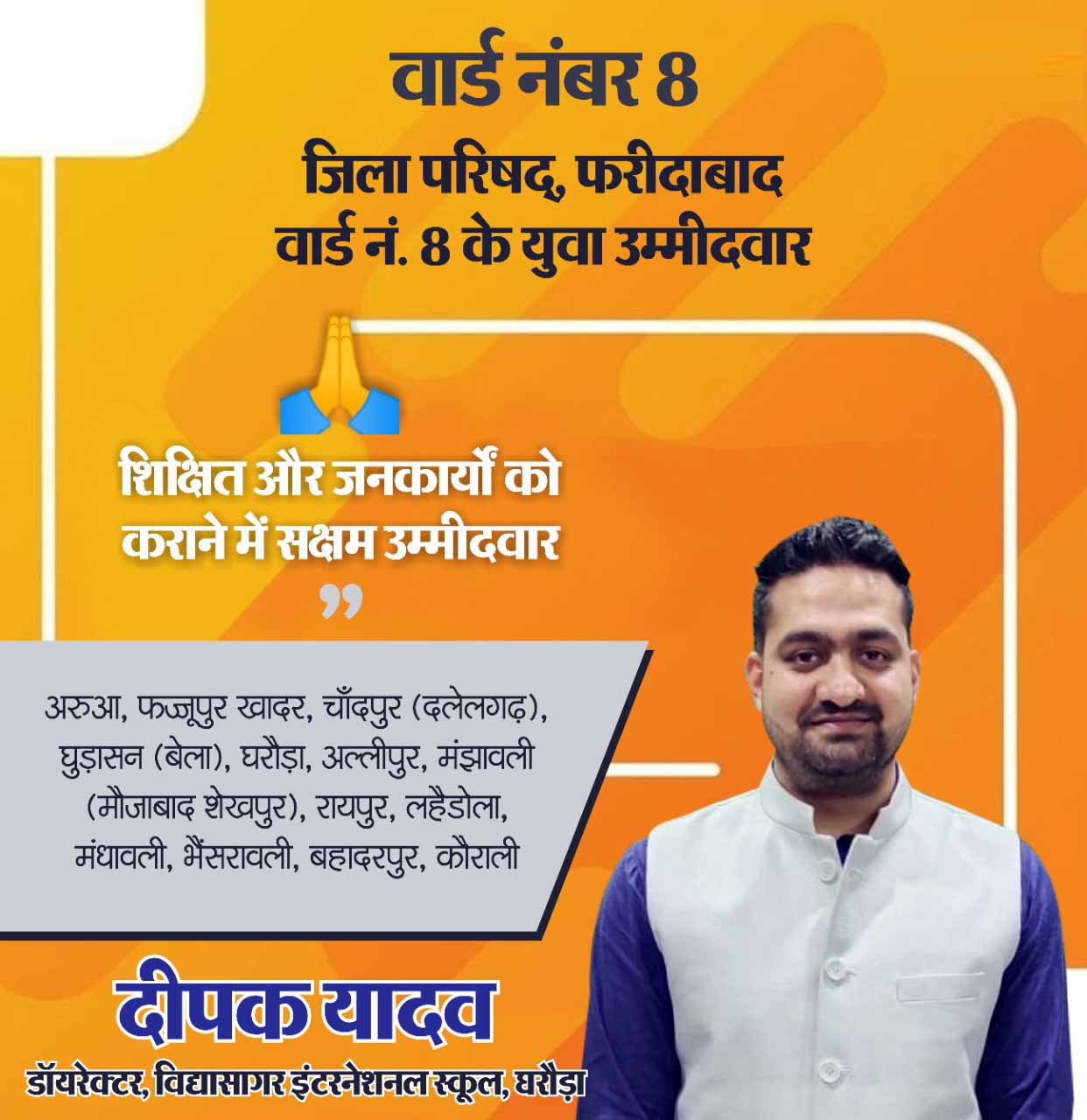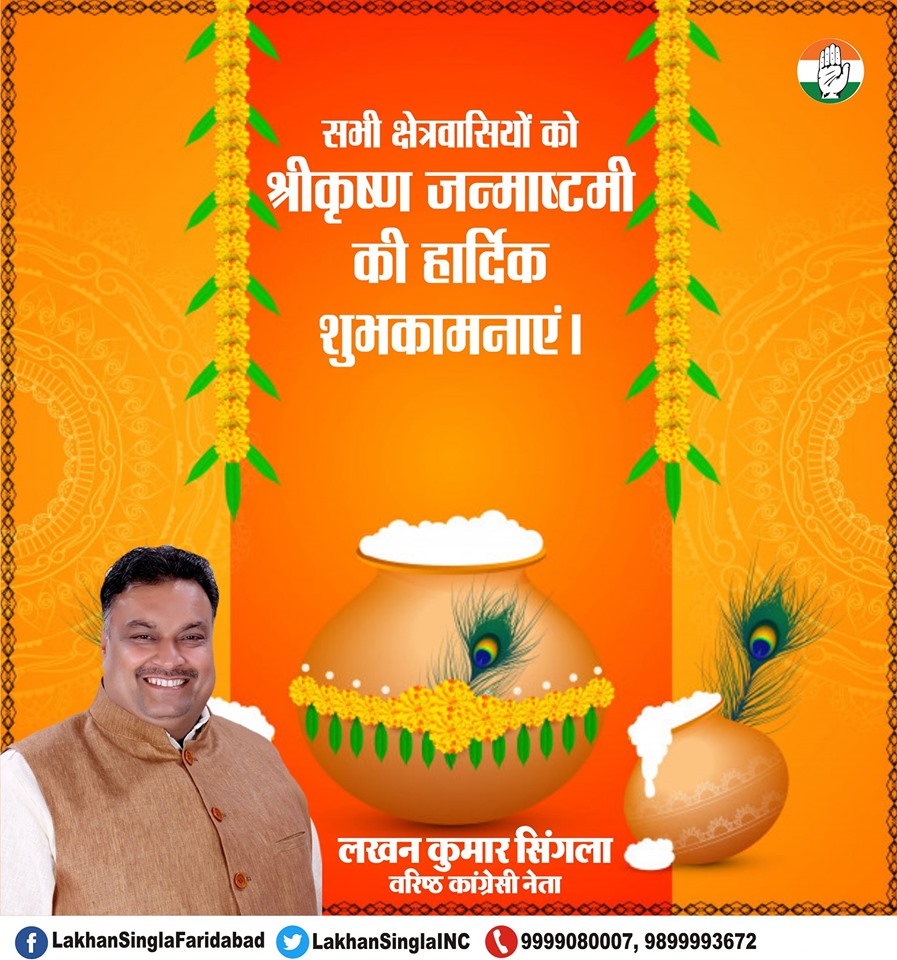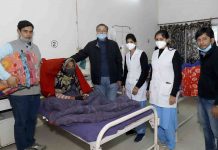Faridabad News, April 9, 2020 : The current healthcare situation due to COVID-19 is not very impressive, and hospitals and healthcare centers are facing a shortage of medical equipment. In India, the ratio of ventilators to the number of population is quite less.
A team of researchers from Manav Rachna Innovation and Incubation Centre (MRIIC) has designed a prototype of a low-cost portable emergency ventilator remotely to provide temporary oxygen supply for patients with emergency needs. All the safety and technical parameters of the ventilator have been set as per International benchmarks. The ventilator is highly cost-effective (approximately five thousand rupees).
Titled as ANSH, this E-Ventilator has an integrated mobile app that allows doctors to monitor the patient’s progress remotely. ANSH uses mechanical linear motion of the Rack and pinion gear mechanism making it the most simple and unique ventilator for the doctors to use in case of emergency. Doctors can control all necessary vital parameters through the app seamlessly and manual controls can be used to monitor automated controls. Manual controls are applicable where judgment and discretion are required. Additional risks arise with the use of manual controls as they can be easily overridden, are susceptible to human error, and are inherently less consistent than automated controls. The app is available for Android platform and works on Bluetooth technology.
Dr. Umesh Dutta, Director, MRIIC and student team comprising Devdutt, Nilansh, Dhruv Sharma and IshlokVashisth share: “The E-Ventilator is the need of the hour and can help medical professionals deal with the situation effectively. We have used the Ambu bag which is commonly used in medical sector to provide manual oxygen to patients who are not able to breathe properly. With the help of the mechanical linear motion arm, we are simulating the pushing force to the Ambu bag with different speeds. With the variable speed motion, the doctors can easily control the oxygen supply according to the patient’s need and also set the carbon dioxide releasing time according to the patient’s situation”.
With the permission of the District Magistrate, Faridabad, the team worked remotely at Manav Rachna Innovation and Incubation Centre, and within 48 hours came with the design of the prototype. The clinical testing of the ventilator is underway.


